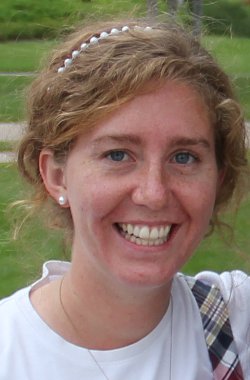- Home
-
About
 Fidelity & Excellence
Fidelity & ExcellenceThomas Aquinas College is unique among American colleges and universities, offering a faithfully Catholic education comprised entirely of the Great Books and classroom discussions.
-
A Liberating Education
 Truth Matters
Truth MattersTruth, and nothing less, sets men free; and because truth is both natural and supernatural, the College’s curriculum aims at both natural and divine wisdom.
-
A Catholic Life
 Under the Light of Faith
Under the Light of FaithThe intellectual tradition and moral teachings of the Catholic Church infuse the whole life of Thomas Aquinas College, illuminating the curriculum and the community alike.
-
Admission & Aid
 Is TAC Right for You?
Is TAC Right for You?Do you enjoy grappling with complex questions? Are you willing to engage in discussions about difficult concepts, with the truth as your ultimate goal?
-
Students & Parents
 Mind, Body & Spirit
Mind, Body & SpiritThere is always something to do at TAC — something worthwhile, something fulfilling, and something geared toward ever-greater spiritual and intellectual growth.
-
Alumni & Careers
 What Can You Do with a Liberal Education?
What Can You Do with a Liberal Education?Nothing speaks more to the versatility of the College’s academic program than the good that our alumni are doing throughout the Church and the world.
- Search
- Giving
Kathleen Sullivan (’06): “The First Truly Catholic Teacher that I’ve Had”
Note: The following is a reflection by Kathleen Sullivan (’06), who is currently pursuing a doctorate in literature and who has helped out with the College’s High School Summer Program for the last eight years. It recounts a story she shared when on campus for this year’s program, describing an instance in which an unlikely student was touched by her faith and the formation she received at the College .
However, my excitement diminished somewhat after that first class when a student approached me and introduced himself as a senior Politics major who was ready for the semester to be over, even though it had just begun. He proceeded to tell me that he did not want to take this course, but his adviser told him he needed it in order to fulfill a requirement. He did not like to read “unimportant” books; he preferred biographies or historical novels, and he had a problem getting up early in the morning, even though the class began at 9:30 a.m. on Tuesdays and Thursdays. Yes, I have to admit, his comments were a bit deflating.
As the semester went on, he would show up late to class. He would indicate that he thought the works were “silly,” and he would often mention that they were all too lengthy. Though blunt, he was not unkind; he was just blatantly uninterested. Since he knew the class requirements and expectations, as well as the attendance policy, I did not feel the need to admonish him for the lackluster attitude. So, he came when he felt the need, and sat there, and seemed to listen.
He did actually participate every once in a while. For example, during the class we had on C.S Lewis’ The Voyage of the Dawn Treader, I brought attention to the moment when Eustace Scrubb, having been transformed into a dragon, is told by Aslan to bathe in the waters. We discussed that scene in light of baptism, and he seemed intrigued by the deeper layers of the text.
In any case, after finishing the course (he did mange to pass), he graduated from the university a few weeks later. The next school year, we were given back the course evaluations of the previous semester that the students had written. I recognized his handwriting right away, and thought, “Oh no, he is going to say how much he hated this course.” This is what he wrote:
“Great teacher.
I think she was the first truly Catholic teacher that I’ve had.
Way too much reading.”
I laughed at the last line (“way too much reading” … good one, for a literature course), then paused and thought more about the other two sentences. A great teacher? The first truly Catholic one in all at this Catholic university?
Though I remembered seeing him at some Masses, I realized he did not write that comment merely because he saw me at Mass. He must have recognized something more internal. Maybe he realized that my love of teaching, and even my love of “silly” literature, stems from the greater love of Christ. Maybe he appreciated my willingness to discuss these “unimportant” texts in the light of Catholic beliefs. Maybe he was grateful to look for the deeper layers in a story or in a character, to notice what is beyond the surface level, to recognize universal truths in everyday matters. Maybe?
Despite not knowing the exact reasons why he wrote what he did, I felt gratitude, first to my family for raising me to love and live the Catholic faith, and then to Thomas Aquinas College, for helping to form my character in a way almost unnoticed by me. Spending four years immersing myself in both the great books and the constant reception of the Sacraments, deepening my faith and strengthening my intellect, has allowed me, in a paraphrase of St. Francis, to “preach constantly, and if necessary, use words.” Thomas Aquinas College has also given me examples to emulate as I try to be a “great teacher.” To them, I am grateful. And to my Politics major, I am glad he found some unexpected value in my class … even if there was way too much reading.


